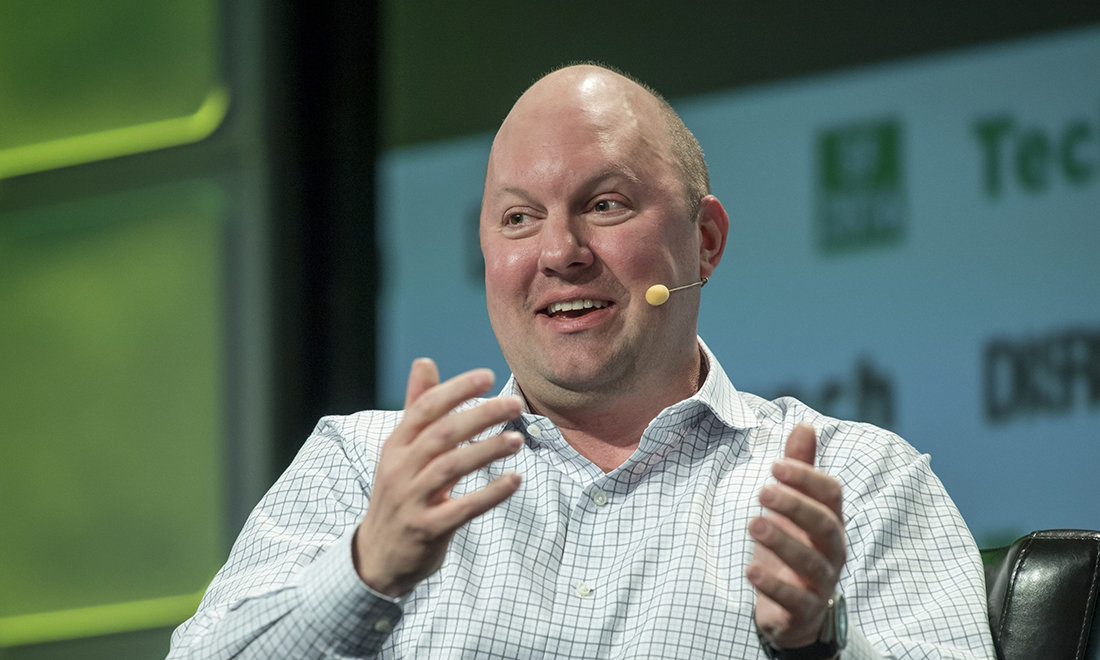
馬克·安德森認為,人工智能可能幫助人類建立一個共享財富和超高生產率的烏托邦。這位億萬富翁投資者剛剛發布了一篇聲明,分析了人工智能技術將如何大幅改善人類的生活,以及為什么它會有這樣的影響。
安德森是第一款廣泛應用的網絡瀏覽器Mosaic的開發者,也是硅谷風險投資基金安德森·霍洛維茨基金(Andreessen Horowitz)的聯合創始人。他之前曾聲稱“軟件正在蠶食人類世界”,現在他主張人工智能可以拯救世界。以下是他給出的理由。
提高人類的智能
愛德森認為,人工智能將大幅提高從醫藥到藝術等各個領域的表現,從而改善人類的生活質量。在他所設想的未來中,每一個孩子都將有人工智能家教陪伴成長,人工智能將用“機器所擁有的無限的愛”教育孩子。無論是政治領袖還是科學家,任何人都將有人工智能助手幫助其最大程度挖掘自己的潛力,并為他們提供支持和指導。
安德森寫道,人工智能將輔助開發新技術,促進科學突破,打造一個創意迸發的黃金時代。
他表示:“人工智能藝術讓不具備技術能力的任何人,都能自由創作和分享自己的藝術創意。與具有同理心的人工智能朋友交流,能夠真正增強人們應對逆境的能力。人工智能醫學聊天機器人已經變得比人類更具有同理心。”
這位億萬富翁還表示,在人工智能的幫助下,人類可以最終解決氣候危機和探索太空。他還表示,人工智能可制定更好的戰術措施,“最大程度降低風險、錯誤和不必要的血戰”,從而降低戰場上的死亡率。
物價更低,工資更高
安德森希望揭穿“勞動力合成謬論”,即在一個經濟體中,任何時候可以從事的工作數量是固定的。目前的普遍觀點是人工智能會讓人類失業,但安德森卻認為,機器從事某些工作,并不會讓人類需要做的工作減少。相反,他表示,人工智能能夠提高生產率。這意味著只需要更少的勞動力,就能提供相同甚至更多商品和服務。安德森預測,這將降低物價,提高購買力,最終增加需求,從而刺激經濟增長。新的行業將會崛起,被人工智能取代的人們可以在這些行業找到新工作。
安德森寫道:“融合技術的市場經濟,可以為任何人提供其想要卻不可得的一切。所以,人工智能技術并不會摧毀就業,永遠都不會。”
如果人工智能技術進步,能力不斷提升,最終消滅人類的更多工作崗位,結果會如何?安德森表示,這將是理想狀況。
這位風險投資者寫道:“假設人工智能再次取代了勞動力?循環將會重復,消費者福利、經濟增長、就業和工資增長等甚至可以進一步提升。這將是一個直接向上螺旋,將帶領人類步入甚至連亞當·斯密或者卡爾·馬克思都沒有夢想過的物質上的烏托邦。”
減少不公平
安德森表示,人工智能也是一次在全球分配財富和福利的機會。與之前的技術一樣,最初可能只有有錢的精英能用人工智能工具,但最終人人都可以使用。
這位億萬富翁表示,貪婪將促使人工智能公司繼續傳播他們的產品,最大程度擴大市場。隨著開發者的不斷普及,人工智能最終將變得像電力一樣無處不在。
安德森寫道:“簡而言之,就像以前的汽車、電力、無線電、計算機、互聯網、手機和搜索引擎一樣,人人都將使用人工智能。這些技術的開發者將積極降低它們的價格,直到所有人都有購買能力。”
安德森認為,人工智能最大的風險是對它的投資速度還不夠迅速。他呼吁美國將人工智能技術盡快融入社會,“以最大程度實現它在經濟生產率和人類潛力方面的增益效果。”(財富中文網)
翻譯:劉進龍
審校:汪皓
馬克·安德森認為,人工智能可能幫助人類建立一個共享財富和超高生產率的烏托邦。這位億萬富翁投資者剛剛發布了一篇聲明,分析了人工智能技術將如何大幅改善人類的生活,以及為什么它會有這樣的影響。
安德森是第一款廣泛應用的網絡瀏覽器Mosaic的開發者,也是硅谷風險投資基金安德森·霍洛維茨基金(Andreessen Horowitz)的聯合創始人。他之前曾聲稱“軟件正在蠶食人類世界”,現在他主張人工智能可以拯救世界。以下是他給出的理由。
提高人類的智能
愛德森認為,人工智能將大幅提高從醫藥到藝術等各個領域的表現,從而改善人類的生活質量。在他所設想的未來中,每一個孩子都將有人工智能家教陪伴成長,人工智能將用“機器所擁有的無限的愛”教育孩子。無論是政治領袖還是科學家,任何人都將有人工智能助手幫助其最大程度挖掘自己的潛力,并為他們提供支持和指導。
安德森寫道,人工智能將輔助開發新技術,促進科學突破,打造一個創意迸發的黃金時代。
他表示:“人工智能藝術讓不具備技術能力的任何人,都能自由創作和分享自己的藝術創意。與具有同理心的人工智能朋友交流,能夠真正增強人們應對逆境的能力。人工智能醫學聊天機器人已經變得比人類更具有同理心。”
這位億萬富翁還表示,在人工智能的幫助下,人類可以最終解決氣候危機和探索太空。他還表示,人工智能可制定更好的戰術措施,“最大程度降低風險、錯誤和不必要的血戰”,從而降低戰場上的死亡率。
物價更低,工資更高
安德森希望揭穿“勞動力合成謬論”,即在一個經濟體中,任何時候可以從事的工作數量是固定的。目前的普遍觀點是人工智能會讓人類失業,但安德森卻認為,機器從事某些工作,并不會讓人類需要做的工作減少。相反,他表示,人工智能能夠提高生產率。這意味著只需要更少的勞動力,就能提供相同甚至更多商品和服務。安德森預測,這將降低物價,提高購買力,最終增加需求,從而刺激經濟增長。新的行業將會崛起,被人工智能取代的人們可以在這些行業找到新工作。
安德森寫道:“融合技術的市場經濟,可以為任何人提供其想要卻不可得的一切。所以,人工智能技術并不會摧毀就業,永遠都不會。”
如果人工智能技術進步,能力不斷提升,最終消滅人類的更多工作崗位,結果會如何?安德森表示,這將是理想狀況。
這位風險投資者寫道:“假設人工智能再次取代了勞動力?循環將會重復,消費者福利、經濟增長、就業和工資增長等甚至可以進一步提升。這將是一個直接向上螺旋,將帶領人類步入甚至連亞當·斯密或者卡爾·馬克思都沒有夢想過的物質上的烏托邦。”
減少不公平
安德森表示,人工智能也是一次在全球分配財富和福利的機會。與之前的技術一樣,最初可能只有有錢的精英能用人工智能工具,但最終人人都可以使用。
這位億萬富翁表示,貪婪將促使人工智能公司繼續傳播他們的產品,最大程度擴大市場。隨著開發者的不斷普及,人工智能最終將變得像電力一樣無處不在。
安德森寫道:“簡而言之,就像以前的汽車、電力、無線電、計算機、互聯網、手機和搜索引擎一樣,人人都將使用人工智能。這些技術的開發者將積極降低它們的價格,直到所有人都有購買能力。”
安德森認為,人工智能最大的風險是對它的投資速度還不夠迅速。他呼吁美國將人工智能技術盡快融入社會,“以最大程度實現它在經濟生產率和人類潛力方面的增益效果。”(財富中文網)
翻譯:劉進龍
審校:汪皓
Marc Andreessen thinks A.I. could lead humanity to a utopia of shared wealth and super productivity. The billionaire venture capitalist just published a 7,000-word manifesto about how and why the technology will vastly improve everyone’s lives.
Andreessen is the creator of the first widely used web browser, Mosaic, and is cofounder of Silicon Valley venture capital firm Andreessen Horowitz. He previously asserted that “software is eating the world,” and now says A.I. can save it. Here’s why.
Augmenting human intelligence
Andreessen thinks A.I. will transform human quality of life by supercharging performance, from medicine to the arts. In his vision of the future, every child will grow up with an A.I. tutor that educates with “the machine version of infinite love.” Likewise, every person, including political leaders and scientists, will have an A.I. assistant to maximize their potential and provide support and guidance.
A.I. will aid the development of new technologies, breakthrough scientific discoveries, and a golden age of creativity, Andreessen wrote.
“A.I. art gives people who otherwise lack technical skills the freedom to create and share their artistic ideas,” Andreesen wrote. “Talking to an empathetic A.I. friend really does improve their ability to handle adversity. And A.I. medical chatbots are already more empathetic than their human counterparts.”
The billionaire added that with A.I.’s help, humanity can eventually solve the climate crisis and explore space. He also said that A.I. could be used to mitigate wartime death rates by making better tactical moves, “minimizing risk, error, and unnecessary bloodshed.”
Lower prices and higher wages
Andreessen wants to debunk the “lump of labor fallacy” that there is only a fixed amount of work to do in an economy at any time. Contrary to popular sentiment that A.I. will put people out of work, the investor wrote, machines doing work won’t leave less work for people to do. Instead, it will lead to productivity growth, he said. That means that less labor will be required for the same or more output of goods and services. Andreessen predicts that this will bring about lower prices, extra spending power, and ultimately higher demand that will fuel economic expansion. New industries will arise to employ people whose original jobs were assumed by A.I.
“A technology-infused market economy is the way we get closer to delivering everything everyone could conceivably want, but never all the way there,” Andreessen wrote. “And that is why technology doesn’t destroy jobs and never will.”
And what if A.I. continues to advance, becoming ever more capable and constantly eliminating more jobs? That would be the ideal, according to Andreessen.
“Suppose A.I. once again replaces that labor? The cycle would repeat, driving consumer welfare, economic growth, and job and wage growth even higher,” the venture capitalist wrote. “It would be a straight spiral up to a material utopia that neither Adam Smith or Karl Marx ever dared dream of.”
Reducing inequality
A.I. is also an opportunity to distribute wealth and benefit globally, Andreessen said. As with technologies that preceded it, access to the tool will initially be limited to the wealthy elite, but eventually will open up to everyone, he wrote.
According to the billionaire, greed will motivate A.I. companies to continue disseminating their product to maximize the size of their market. A.I. will eventually be as ubiquitous as electricity, as its developers expand their reach.
“In short, everyone gets the thing—as we saw in the past with not just cars but also electricity, radio, computers, the internet, mobile phones, and search engines,” Andreessen wrote. “The makers of such technologies are highly motivated to drive down their prices until everyone on the planet can afford them.”
In Andreessen’s opinion, the biggest risk of A.I. is not investing in it quickly enough. He calls for the U.S. to integrate the technology into society as urgently as possible to “maximize its gains for economic productivity and human potential.”






